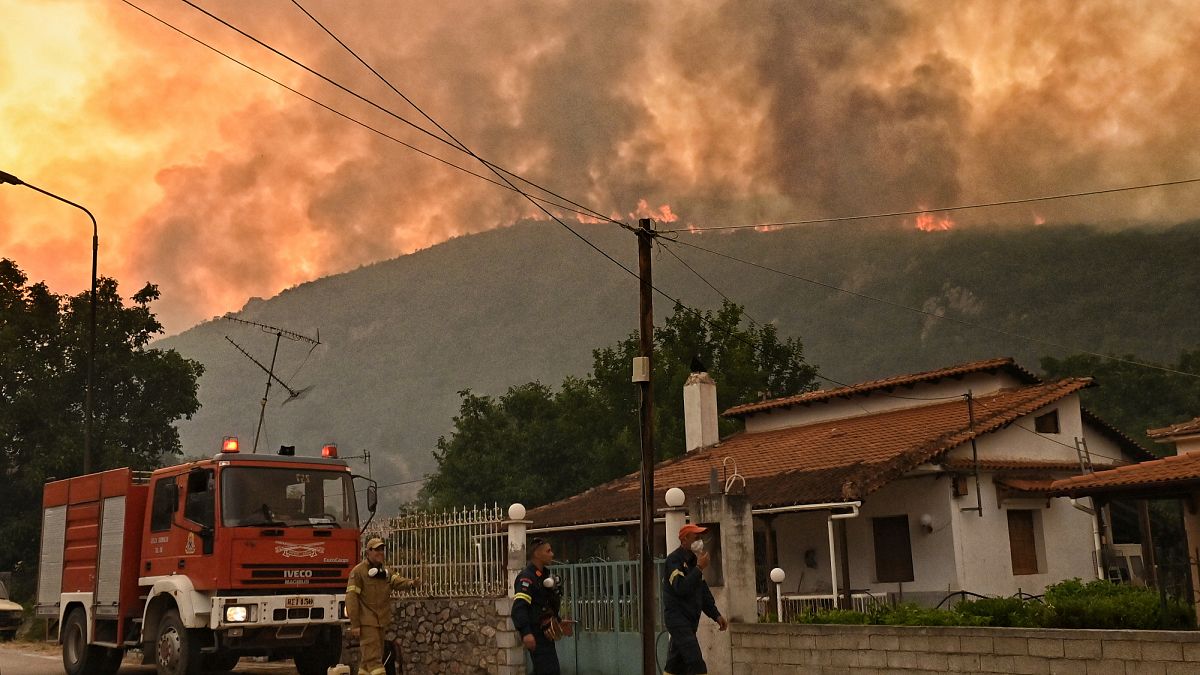

In a world experiencing rapid climate shifts, communities across the globe are finding themselves continually adapting to new realities. Recent events highlight both the challenges and innovative responses that are integral to this transition.
In Greece, intense forest fires have prompted evacuations in several villages. This development comes amid a backdrop of Europe witnessing the fastest temperature rises on Earth, according to a 2024 report by the EU’s Copernicus Climate Change Service. The intricate landscapes of Greece, known for their vibrant biodiversity, now face recurring threats from climate change-induced events, spurring communities and authorities alike to seek sustainable solutions.
Meanwhile, a unique artistic initiative in California is drawing attention to environmental sustainability. A group of six towering wooden trolls, creatively constructed from trash, has been installed in a forest setting to urge humans to cultivate a more harmonious relationship with nature. This imaginative display acts as both a testament to the potential of repurposing waste and a call to action for adopting more sustainable living practices.
Climate change’s impact extends far beyond art installations and forest fires. In the agricultural sector, climate extremes, including heatwaves and erratic weather patterns, are driving up food prices. A case in point is the impact on staple crops such as British potatoes and Spanish olives. The resultant price spikes are not just an economic concern but pose significant implications for public health and social stability, emphasizing the urgent need for innovative agricultural practices and policies to mitigate these effects.
The island nation of Cyprus is also grappling with extreme weather conditions. A heatwave warning has been issued as temperatures are predicted to soar to 41°C. While the forecast suggests the heatwave will subside by the end of the week, such conditions underscore the frequency and severity of heatwaves prompted by global climate changes. This scenario calls for enhanced preparedness and adaptation strategies to safeguard communities and infrastructure.
Additionally, the Mediterranean region is witnessing troubling marine conditions as sea surface temperatures around Spain and Portugal have risen significantly, occasionally surpassing 30°C (86°F). Scientists express concern over the adverse effects on marine life, suggesting that human-induced climate change has intensified and prolonged marine heatwaves, affecting ecosystems that are vital to the region’s environmental health and local economies.
Through these various experiences, the interconnectedness of climate effects on natural systems and human activities is increasingly apparent. However, these challenges also serve as a catalyst for innovation and change. Communities are inspired to embrace sustainability, adapt practices, and harness creativity to navigate and mitigate the impacts of climate change effectively. As awareness grows, efforts to balance human activities with environmental well-being are gaining momentum, offering hope for a more sustainable coexistence with nature.
Source: {link}
